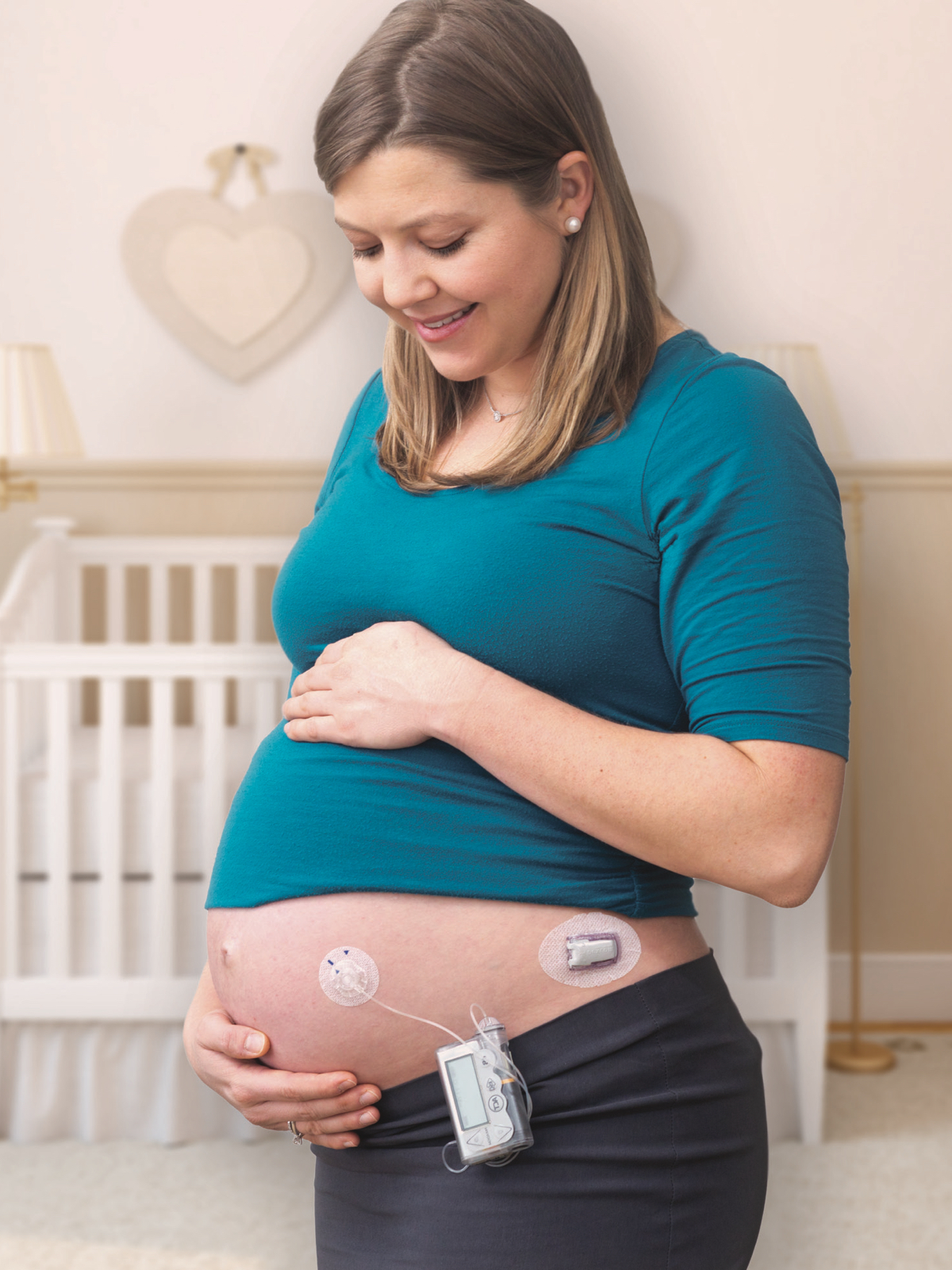
Whether you’ve just started planning, or are looking ahead, gathering information is the first step to a safe and healthy pregnancy with T1D. Many women choose to work with a team that includes an endocrinologist, primary care doctor, and an OB-GYN, preferably one who has experience with T1D pregnancies.
Creating a pregnancy plan is the next step. Most experts recommend maintaining an HbA1c at or below 6 percent before you conceive, and maintaining that range throughout your pregnancy. It’s also important early in the planning stages to consider wearing a CGM if you don’t already. A CGM will provide additional insight into blood-glucose patterns, helping you maintain healthy blood-glucose levels.
With all the excitement, planning and well-intended advice from friends and family, pregnancy can also feel overwhelming. Take a deep breath! JDRF is here to help you experience a healthy and happy pregnancy.
Planning for Baby
First Trimester
Second Trimester
Third Trimester
Life with Baby
Life with Baby
Sarah, who has type 1 diabetes (T1D), talks about her childbirth experience as well as some of the new challenges she has faced with blood sugar management post-pregnancy.
Myths & Facts
Women with T1D have been having healthy pregnancies for decades, but a handful of discouraging myths and misconceptions remain. Below, several of the most common myths and facts about pregnancy and T1D are explained.
Myth: Women with T1D have big babies
Fact: When mothers keep blood-glucose levels in range during pregnancy, the baby’s size will not be affected
Myth: Women with T1D have a harder time getting pregnant
Fact: A woman’s fertility is complex and related to many factors, T1D alone is not one of them
Myth: You’ll have to deliver early and you will most likely have a C-section
Fact: While it is common for women with T1D to be induced at 38 weeks, with good blood glucose management, you can have a full term, natural delivery
Myth: Your children will automatically have diabetes
Fact: Children of mothers with T1D only have a slightly elevated risk of developing T1D
Myth: It is not important for men with T1D to have their blood-sugar levels well controlled while trying to conceive.
Fact: Poorly controlled T1D can affect sperm count, sperm health and erectile function. It is important to be as well controlled as possible while trying to conceive.
Myth: Having a blood-sugar level in the 200‒300 mg/dL range during the first few weeks of pregnancy (before the pregnancy is confirmed) will cause the baby to have birth defects.
Fact: It is true that the first six weeks of pregnancy are critical because your baby’s organs are forming during this time. Fortunately, birth defects are quite rare for women with T1D. However, they occur more frequently than the general public, and high blood-sugar is the main reason for the increased risk. Good control before a pregnancy and during the first trimester will reduce this risk significantly.
Life With T1D
From tips on counting carbs to advice for traveling with supplies and equipment, our guide makes it easy to stay healthy.

Insurance
Get help navigating healthcare and health insurance.

School
Find helpful tips for managing T1D in the classroom.

Mental Health
From tips on counting carbs to advice for traveling with supplies and equipment, our guide makes it easy to stay healthy while living with type 1 diabetes (T1D).

Financial Resources
There’s no question: diabetes is expensive.

Exercise
Resources for T1D Athletes.

Food and Diet
There’s no such thing as a “diabetic diet.”

Pregnancy
If you have T1D and are pregnant, or planning to become pregnant, we have some basic information on how to have a safe and healthy pregnancy.

Parenting and Relationships
We understand how scary it can be and want to help, no matter what stage your family is at in figuring out your new “normal”.
You Are Not Alone
Living with the burden of T1D can be overwhelming at times. But you’re never alone. The JDRF community has your back.

Community Forum
Connect with people all over the world who are dealing with T1D in their own way.

Events and Groups
Whether you’re looking for support, a chance to volunteer or simply a good time with others dealing with T1D, we have you covered.

Personal Support
You have questions. JDRF or a member of our community is sure to have the answer.











